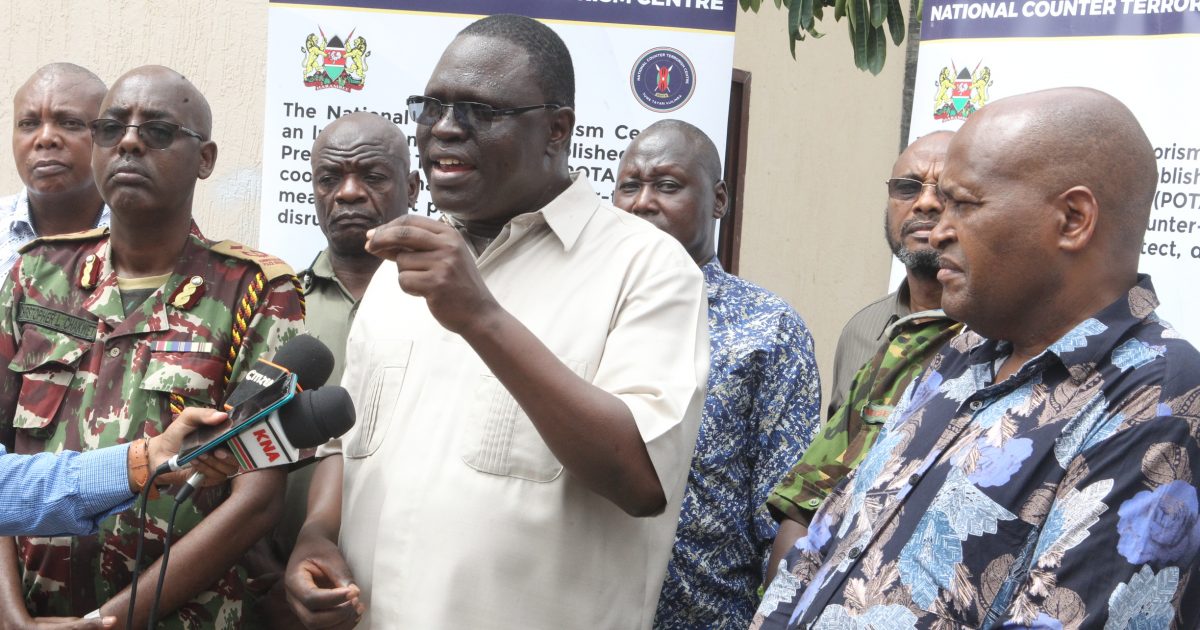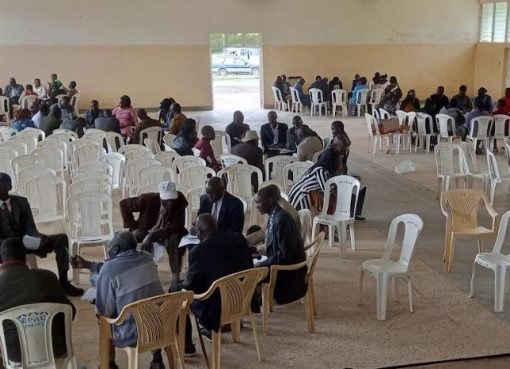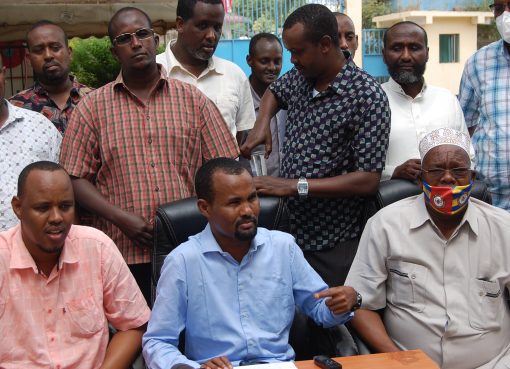There is a need for the government security agencies to change their strategy on the war against terror, North Eastern regional commissioner John Otieno has said.
Otieno said that the terrorist groupings have taken advantage of a dynamic world, and emerging technology to change their tact and are now involved in targeted attacks that are intelligence-led.
The regional commissioner was addressing the press at a Garissa hotel on Tuesday after opening a two-day workshop organized by the National Counter Terrorism Centre to review the national strategy for countering violent extremism. The document was developed in 2016.
The administrator noted that the document has ‘served the country well and there is a need to enrich it further so that it serves us now and in the future’.
North Eastern and Lamu County have borne the biggest brunt of terror attacks perpetrated by the Somali-based terror group. Several security officers, police reservists, and civilians have lost their lives. Mobile telephone communication masts have not been spared in the attacks.
The regional commissioner said the government cannot afford to lag behind the terror group in terms of intelligence gathering which he noted would be ‘catastrophic’.
“The Al-Shabaab has changed their strategy of engagement. These attacks are intelligence-led attacks aimed at our security personnel, government workers, teachers, and even civilians,” Otieno said.
“And for such attacks to happen you must have credible information. And the information normally comes from the people who may include our security personnel and the civilians who provide information on the movement of our officers” he added.
The regional commissioner thanked area residents for their continued support of providing credible information that has helped security agents deter terror attacks. He further urged them to continue with the same spirit.
Otieno was, however, quick to urge a few who might be working with Al-Shabaab to ‘change and work with the government because this is our country we have everything to lose for lack of security’.
He said that the war on terror is both a soft and hard approach. The hard approach is the security approach while the soft approach is bringing on board the religious leaders, the political leaders, the youth and the civil society, and all other relevant groups so that we can be able to preach the message of de-radicalization to the youth.
“We have to look at the factors and drivers of radicalization so that we can be able to address them,” he said.
“The government is committed to ensuring that there is peace and security in the region and any other part of this country. This can only be done if we work together with all actors including the political wing, county governments, religious leaders, civil society, and the media,” he noted.
On his part, the head of prevention and resilience at NCTC Njega Miiri said that the media plays a critical role in countering violent extremism by propagating the messages that preach unity and security to the citizenry.
Miiri said that NCTC is looking for collaboration from the communities, leadership, and the media in countering violent extremism among the youth in the region and the country at large
“We implore upon the media to reach out to the people with the correct messages and information. The enemy will always try to propagate a lot of information and disinformation and half-truths,” Miiri said
“On our part, we need to collaborate and partner so that our communities out there can get the correct information,” he added.
The region has experienced a spate of attacks orchestrated by the Somali-based Al-Shabaab terror group.
The meeting that brought together county security teams from Garissa, Wajir, Mandera, Tana River and Kitui, and Garissa counties, youth, women, religious leaders, civil society, and county governments is supported by The Global Community Engagement and Resilience Fund (GCERF) in partnership with The National Counterterrorism Center (NCTC) and Act Change Transform.
By Jacob Songok





